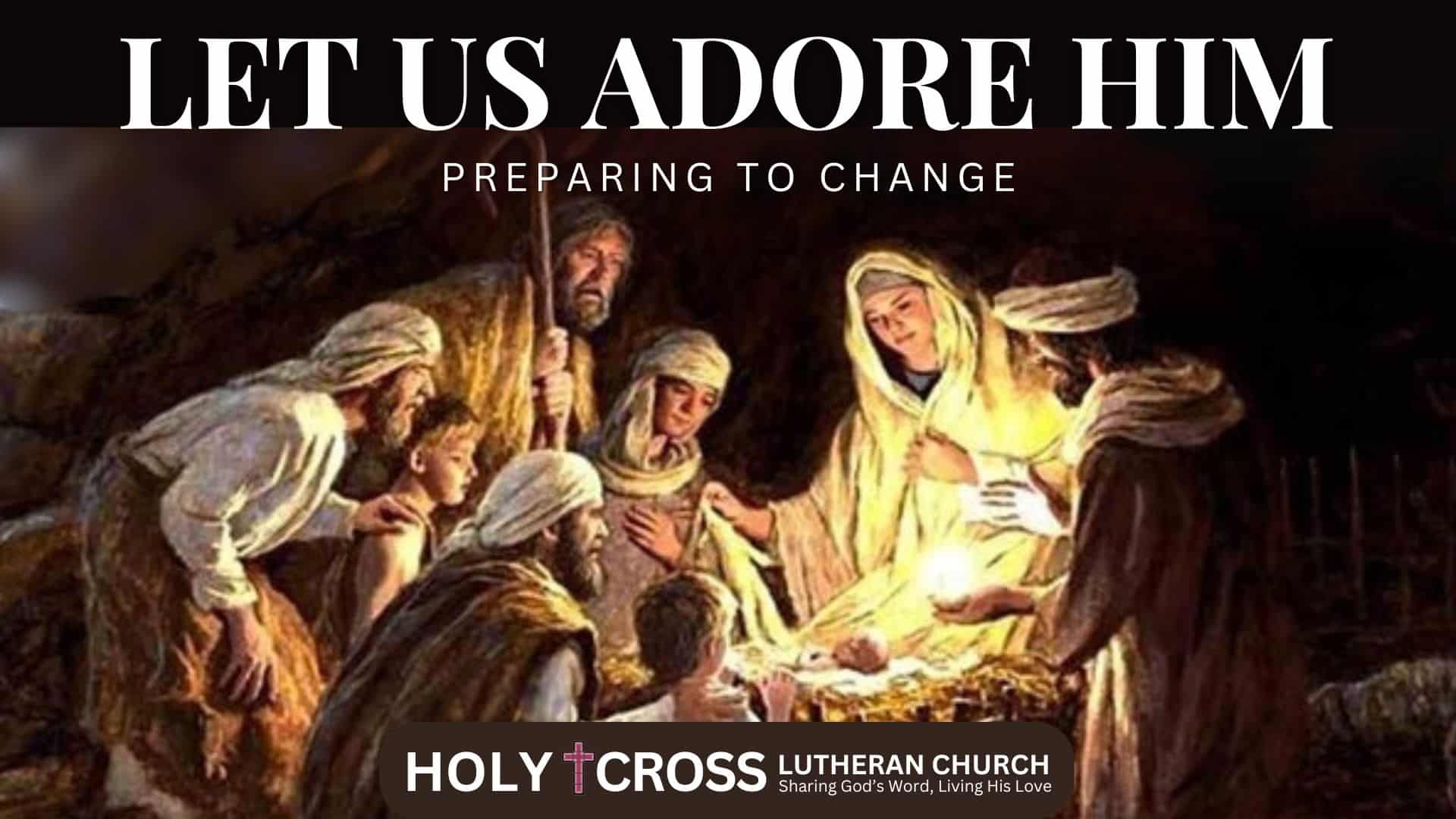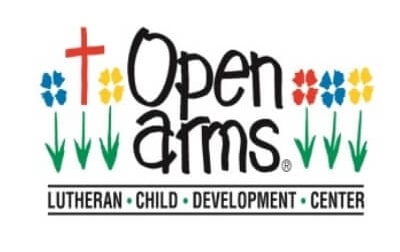
Luke 3:1-14
December 8, 2024
When I was growing up, one of the television shows I enjoyed watching after school, which was already in reruns, was The Lone Ranger. Now even if you did not watch The Lone Ranger, I’m sure many of us know one of the last lines that would be spoken at the end of every show. Right at the end someone would ask, “Who was that masked man?” And someone else would answer by saying, “Why, don’t you know? He’s the Lone Ranger,” and then the Lone Ranger would ride away on his horse, Silver.
As a child I remember asking my parents why the person who was saved from the bad guy at the beginning of the show would always wait until the end of the show to ask who it was who saved him. Why don’t they ask his name when he’s there helping them? My parents didn’t know and they tried to help me understand that it was just the way the show was written.
As we prepare for Christmas, not only are there many people who do not know Jesus today, but there were many people in the days of Scripture who did not know Jesus and were not prepared for His appearance. Back near the beginning of the book of Genesis, God promised that someone, born of a woman, would come to destroy Satan and to save us. In Genesis 3 God said to Satan, “And I will put enmity between you and the woman, and between your offspring and hers; he will crush your head and you will strike his heel.” And for hundreds and thousands of years through the Old Testament people lived with the hope that the Savior would come in their lifetime. But it did not happen. In our Old Testament lesson for today God spoke through the prophet Malachi, the last book of the Old Testament, and said, “See, I will send my messenger, who will prepare the way before me. Then suddenly the Lord you are seeking will come to his temple.” But after those words were spoken, hundreds of years passed and nothing happened. No messenger and no Savior. Finally, about 400 years later, John the Baptist comes out of the wilderness and talks to people to prepare them for the coming of Jesus. His job was
not only to be a witness to prepare people so they would know who Jesus was, but also so they would know how to respond to Him appropriately. And what does this preparation involve? We are told in our Gospel lesson of Luke 3:4-6, that contains words of prophecy made by Isaiah 800 years earlier saying, “The voice of one calling in the wilderness; ‘Prepare the way of the Lord, make his paths straight. Every valley shall be filled, and every mountain and hill shall be made low, and the crooked shall become straight, and the rough places shall become level ways, and all flesh shall see the salvation of God.” John the Baptist was that voice and God uses a picture of major road construction to describe that preparation.
While I have never personally worked in road construction, I do consider myself somewhat well-experienced in road construction having driven through Clayton and Raleigh for the past 24 years, sitting in traffic and watching those multi-year construction projects progress or reach completion. The construction picture that Luke is describing for us is not like simply paving a gravel road or putting in guard rails, this is major road construction – the leveling of mountains, the filling in of canyons, rerouting roads to make them straight, and removing every obstacle that might make travel difficult. Probably similar to the initial construction of I-40 between North Carolina and Tennessee, and the reconstruction of I-40 and other roads between those two states as a result of Hurricane Helene.
God used this picture to describe the spiritual preparation that needed to take place for people to be ready for Christ’s coming. It was major, and it is the same major preparation that needs to take place today for us to be ready to celebrate Christ’s coming. This preparation is described in Luke 3:3 as it says, “John the Baptist went into all the region around the Jordan, proclaiming a baptism of repentance for the forgiveness of sins.” If there was one word that best summarized this preparation John was calling for, it’s the word “repentance.”
Repentance involves two things: First, it is a passionate word that involves a radical change of direction, a turning around as though you are headed towards great danger. It’s a word that also
involves sorrow and regret about the direction one is headed as it reveals the mountains of selfishness we have in our hearts; the valleys of doubt that have led us to ignore certain parts of God’s Word, because they cause inconvenience or embarrassment; and the crooked roads of anger that we hold on to for what someone said or did to us in the past. Second, the word involves understanding the seriousness of our sin and believing in Jesus as the one-man construction crew who will forgive our sins and pave the way to heaven. So if you put these two things together, repentance then is a lifestyle, a way of living that involves change. In verse 8 of our Gospel lesson, John said, “Bear fruit in keeping with repentance,” meaning active repentance will be reflected in the way you live your life.
But the people gathered to hear him wanted more specifics. So in verses 10-14, the people all ask, “What then should we do to show repentance in our lives?” And John basically says to them, “Be content.” Specifically there are three things he seems to emphasize to them about repentance and lifestyle. First, John says that sharing, caring, and being generous with our money and possessions is what repentant people do who want to see and serve Jesus. And that is something the very first church did in the book of Acts – thay cared for those who were in need by giving and sharing, and that is something I know we do in many different ways here at Holy Cross – we care for those in need.
Second, John’s answer is that repentant people are aware of those who are in need. In order for the multitude to give away their food and clothing they have to know who needs it. The tax collectors and soldiers needed to know whether people were hurting so that they were not too hard on them. Maybe for some of you here today finances have been a little tight this year and you’ve had to cut back on some things. But God never cuts back, His blessings are never ending. He never cuts back on His love and grace, and in difficult times He often provides in ways we never expect. As we prepare to celebrate the gift of God’s Son on Christmas, it has been exciting to see how many of you filled shoeboxes with gifts for Operation Christmas Child;
provided food for our Backpack Buddies ministries; supported our Matthew Ministry to the homeless, and made financial donations to our Hurricane Helene relief fund. It is always amazing how God provides for people.
Third, John’s answers to the questions of bearing fruit suggests that we need to be in the world, not hiding from the world. That’s one thing our missionaries do on a daily basis. They are in the world, serving those who are less fortunate than us, and they are telling those who do not know that a Savior, Jesus Christ, was born, lived, died, and rose again for their sins so that they could live forever. John is not saying, though, that in order to be in the world we should all quit our jobs and become missionaries. What he is saying to the people he meets and to all of us is: “Use your possessions wisely, share with those in need, and treat people with respect and care.” When we repent inwardly in sorrow over our sin and match it with acts or fruits of repentance, then we will be prepared every day to see and to serve Jesus.
At the end of the Lone Ranger a person asks, “Who was that masked man?” But before they get an answer the Lone Ranger is already gone and they realize it’s too late to thank him. As we prepare to celebrate Christ’s birth, we also know that someday He will return and how sad it will be for some people to see Christ and not know Him, because they were not prepared. As we prepare to make that journey to Bethlehem once again this year, we do it with the understanding of our need to change – to repent of our sins, and to be content, by sharing with others who are in need and trusting God to always provide for us.


